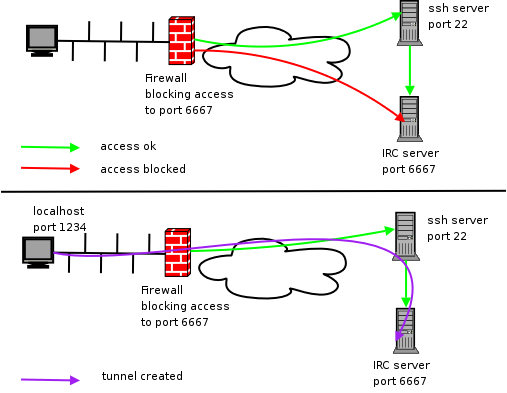Discover reliable SSH Tunnel servers in Chile with 99.9% uptime. Join 31% of Latin American users choosing secure tunneling for private browsing. Access 50+ free Chilean SSH servers with speeds up to 100Mbps, supporting OpenSSH protocol. With VPN usage in Chile growing 47% since 2021, SSH tunneling offers a cost-effective alternative to traditional VPNs. Experience unlimited bandwidth, military-grade encryption, and bypass geo-restrictions while maintaining anonymity. Chilean servers provide average ping rates of 45ms for South American connections. Connect through Santiago’s tier-1 data centers with 256-bit encryption and no-logs policy.
Share our website on social media
- 10GB/s
- Free account SSH Tunnel every 4 days
- Location : Chile
- Location : Chile
- City : Santiago
- SSL/TLS support
No Torrent
Accounts on server : 103
Server ID : S10
The Philosophy of Digital Privacy
In the realm of digital existence, privacy emerges as a fundamental human right, akin to the concept of personal autonomy championed by philosophers like John Stuart Mill. The ssh tunnel, a digital manifestation of this right, serves as a modern-day cloak of invisibility, reminiscent of Plato’s Ring of Gyges. This tunnel ssh mobaxterm represents more than mere technology; it embodies the Kantian notion of human dignity and the inviolability of personal space.
The act of ssh tunnel port forwarding can be viewed through the lens of Sartre’s existentialism, where individuals assert their freedom in the face of an increasingly surveilled digital landscape. This technological rebellion against digital determinism echoes Camus’ concept of the absurd hero, defying the seeming inevitability of online tracking and data harvesting.
Freedom vs Security: Ethical Dilemmas
The tension between digital freedom and security presents a classic utilitarian dilemma. The implementation of tunnel ssh windows raises questions about the greater good: does the security of the many outweigh the privacy of the few? This echoes the eternal philosophical debate between liberty and order, reminiscent of Hobbes’ social contract theory.
The ethical implications of tunnel ssh port forwarding extend beyond individual rights to societal norms. It challenges us to consider Rawls’ “veil of ignorance” – if we didn’t know our place in society, would we choose a world with or without digital privacy tools?
Technology and Human Rights
The right to digital privacy, as embodied in the tunnel ssh command, can be seen as an extension of fundamental human rights. This technological safeguard aligns with Locke’s concept of natural rights, transposed into the digital realm. The use of privacy tools like tunnelbear download becomes an act of digital self-preservation, akin to the Aristotelian pursuit of eudaimonia in the online world.
However, the universality of this right is challenged by global disparities in internet freedom. The ssh tunnel udp becomes a tool of resistance in oppressive regimes, embodying Foucault’s ideas on power dynamics and resistance in the digital age.
The Digital Divide: Social Justice Issues
The accessibility of privacy tools like SSH tunnels highlights the digital divide, a modern manifestation of social inequality. This technological gap echoes Marx’s critique of class disparities, now realized in the unequal distribution of digital resources and knowledge. The concept of tunnel vision takes on new meaning, symbolizing the narrow focus on technological advancement without consideration for equitable access.
The implementation of an ssh tunnel server becomes not just a technical act, but a social one, challenging us to consider digital rights as fundamental to human dignity in the 21st century. This aligns with Sen’s capability approach, viewing technology access as crucial for individual flourishing.
Individualism vs Collective Security
The use of tunneling technology presents a microcosm of the broader philosophical debate between individualism and collectivism. It raises questions about the limits of personal freedom in a interconnected digital ecosystem. This tension echoes the classical liberal views of Mill against the communitarian philosophy of thinkers like MacIntyre.
The individual’s right to digital privacy must be balanced against the collective need for cybersecurity, presenting a modern version of the age-old philosophical question: how much of our individual liberty should we sacrifice for the common good?
The Future of Digital Democracy
As we peer into the future of digital governance, the role of privacy tools in shaping digital democracy becomes paramount. The widespread use of SSH tunnels and similar technologies could lead to a Habermasian public sphere in the digital realm, fostering open and protected discourse essential for democratic processes.
However, this vision is challenged by the potential for these tools to create echo chambers and filter bubbles, reminiscent of Plato’s allegory of the cave, where individuals may become trapped in their own digital realities, disconnected from the broader societal discourse.
Existential Questions in the Digital Age
The reliance on digital privacy tools raises profound existential questions about the nature of identity and authenticity in the digital age. In a world where our online presence is increasingly synonymous with our being, the use of SSH tunnels and similar technologies becomes an act of existential self-definition.
This digital existence, protected by layers of encryption and anonymity, echoes Heidegger’s concept of “thrownness” into a technological world, challenging us to find authenticity amidst the bits and bytes of our digital selves. The choice to use privacy tools becomes not just a practical decision, but an existential one, defining our being-in-the-world in the digital age.
Latest 10 Post about SSH Tunnel on Blog

